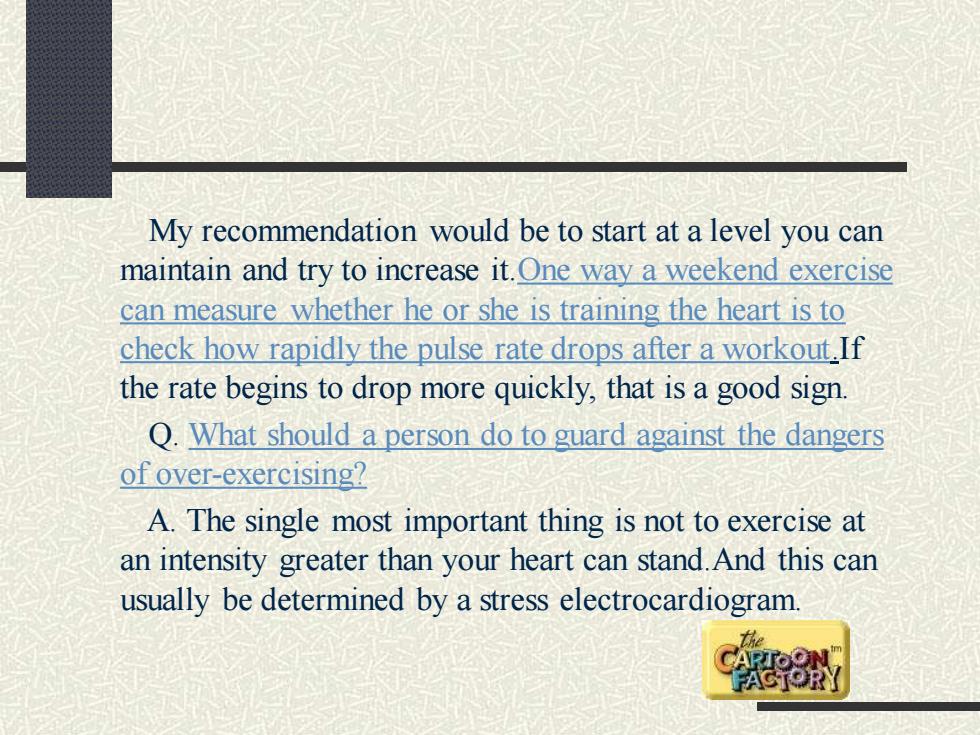
My recommendation would be to start at a level you can maintain and try to increase it.One way a weekend exercise can measure whether he or she is training the heart is to check how rapidly the pulse rate drops after a workout.If the rate begins to drop more quickly,that is a good sign Q.What should a person do to guard against the dangers of over-exercising? A.The single most important thing is not to exercise at an intensity greater than your heart can stand.And this can usually be determined by a stress electrocardiogram. c8州
My recommendation would be to start at a level you can maintain and try to increase it.One way a weekend exercise can measure whether he or she is training the heart is to check how rapidly the pulse rate drops after a workout.If the rate begins to drop more quickly, that is a good sign. Q. What should a person do to guard against the dangers of over-exercising? A. The single most important thing is not to exercise at an intensity greater than your heart can stand.And this can usually be determined by a stress electrocardiogram
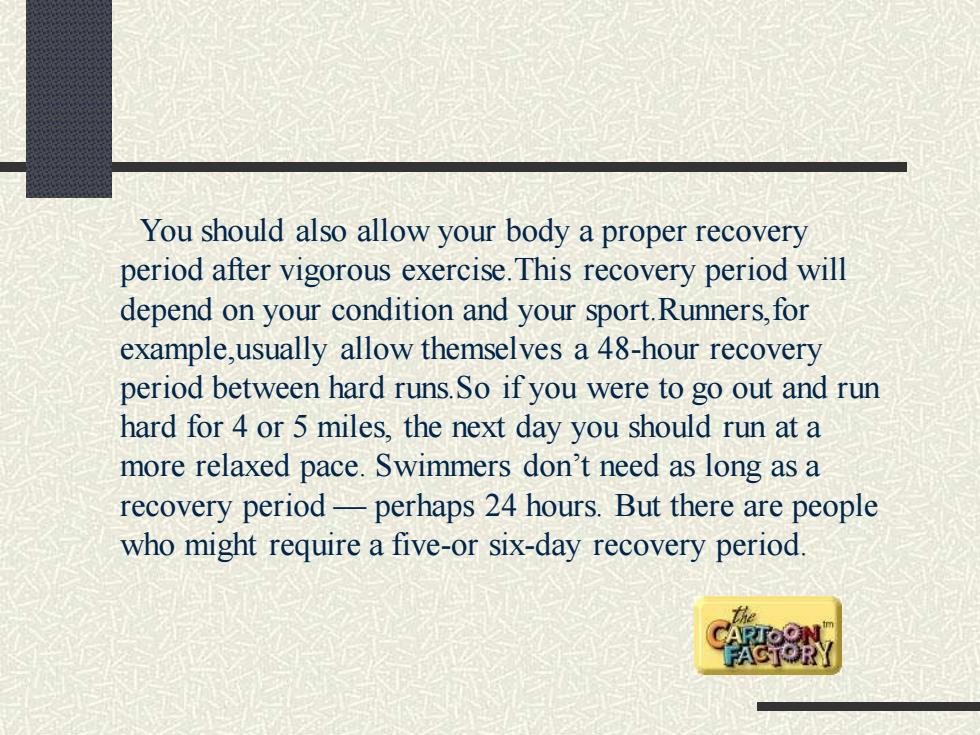
You should also allow your body a proper recovery period after vigorous exercise.This recovery period will depend on your condition and your sport.Runners,for example,usually allow themselves a 48-hour recovery period between hard runs.So if you were to go out and run hard for 4 or 5 miles,the next day you should run at a more relaxed pace.Swimmers don't need as long as a recovery period-perhaps 24 hours.But there are people who might require a five-or six-day recovery period 8
You should also allow your body a proper recovery period after vigorous exercise.This recovery period will depend on your condition and your sport.Runners,for example,usually allow themselves a 48-hour recovery period between hard runs.So if you were to go out and run hard for 4 or 5 miles, the next day you should run at a more relaxed pace. Swimmers don’t need as long as a recovery period — perhaps 24 hours. But there are people who might require a five-or six-day recovery period
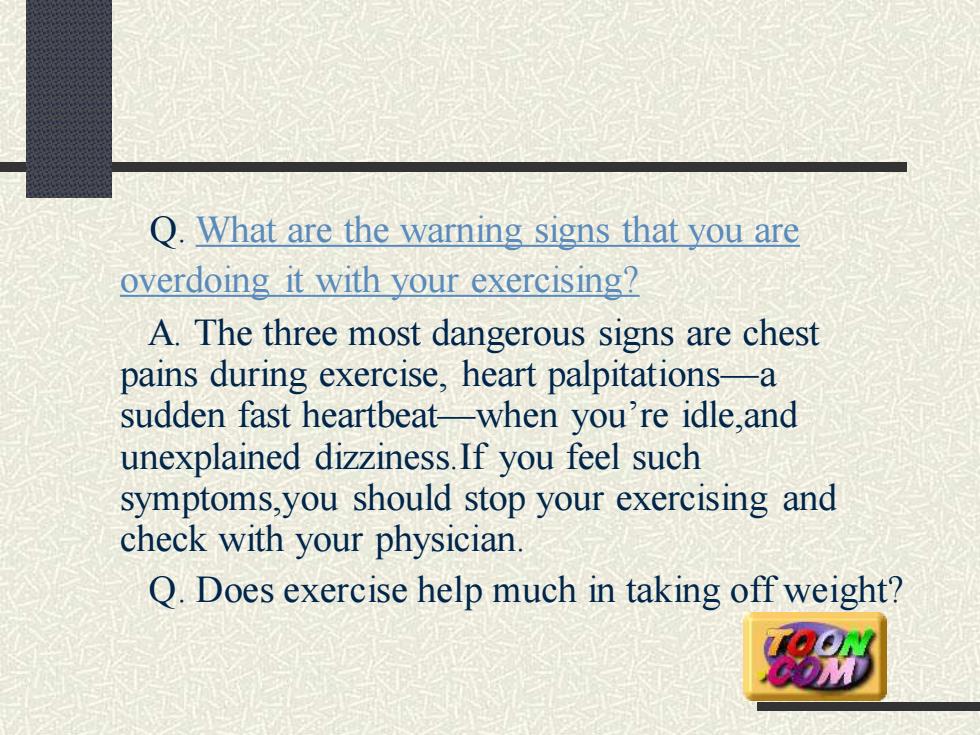
Q.What are the warning signs that you are overdoing it with your exercising? A.The three most dangerous signs are chest pains during exercise,heart palpitations-a sudden fast heartbeat-when you're idle,and unexplained dizziness.If you feel such symptoms,you should stop your exercising and check with your physician. Q.Does exercise help much in taking off weight?
Q. What are the warning signs that you are overdoing it with your exercising? A. The three most dangerous signs are chest pains during exercise, heart palpitations—a sudden fast heartbeat—when you’re idle,and unexplained dizziness.If you feel such symptoms,you should stop your exercising and check with your physician. Q. Does exercise help much in taking off weight?
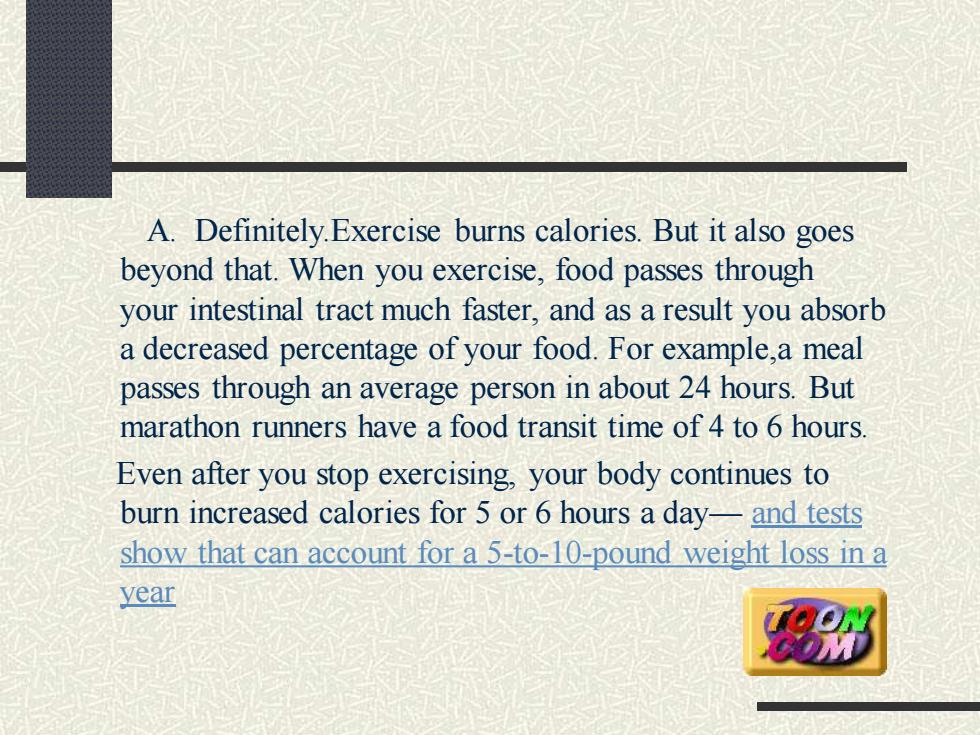
A.Definitely.Exercise burns calories.But it also goes beyond that.When you exercise,food passes through your intestinal tract much faster,and as a result you absorb a decreased percentage of your food.For example,a meal passes through an average person in about 24 hours.But marathon runners have a food transit time of 4 to 6 hours. Even after you stop exercising,your body continues to burn increased calories for 5 or 6 hours a day-and tests show that can account for a 5-to-10-pound weight loss in a year
A. Definitely.Exercise burns calories. But it also goes beyond that. When you exercise, food passes through your intestinal tract much faster, and as a result you absorb a decreased percentage of your food. For example,a meal passes through an average person in about 24 hours. But marathon runners have a food transit time of 4 to 6 hours. Even after you stop exercising, your body continues to burn increased calories for 5 or 6 hours a day— and tests show that can account for a 5-to-10-pound weight loss in a year
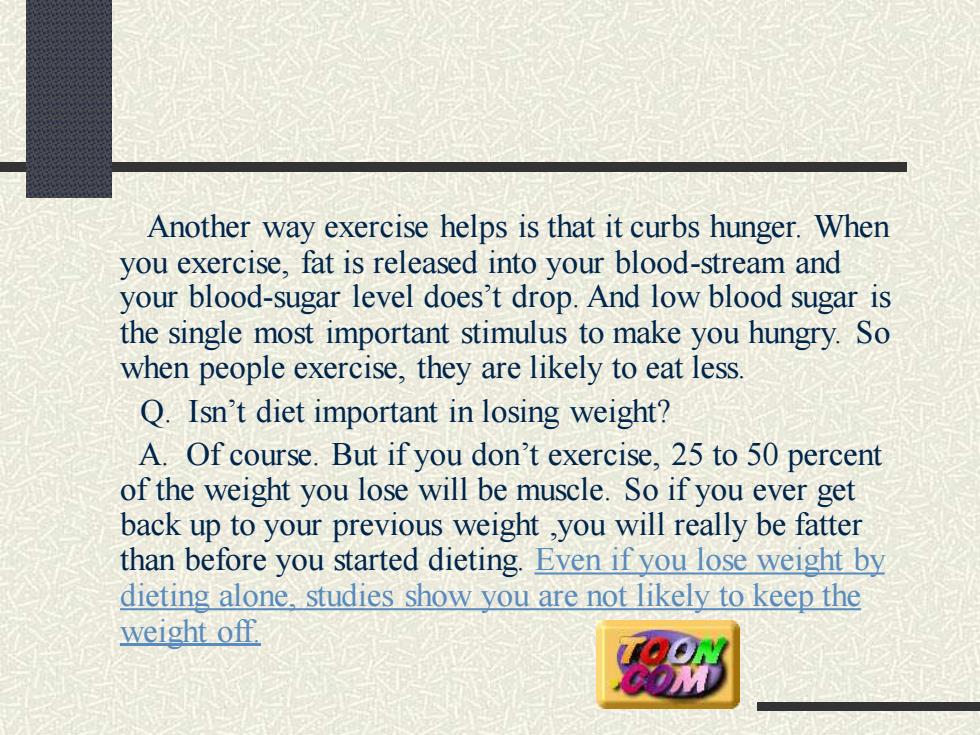
Another way exercise helps is that it curbs hunger.When you exercise,fat is released into your blood-stream and your blood-sugar level does't drop.And low blood sugar is the single most important stimulus to make you hungry.So when people exercise,they are likely to eat less Q.Isn't diet important in losing weight? A.Of course.But if you don't exercise,25 to 50 percent of the weight you lose will be muscle.So if you ever get back up to your previous weight,you will really be fatter than before you started dieting.Even if you lose weight by dieting alone.studies show you are not likely to keep the weight off
Another way exercise helps is that it curbs hunger. When you exercise, fat is released into your blood-stream and your blood-sugar level does’t drop. And low blood sugar is the single most important stimulus to make you hungry. So when people exercise, they are likely to eat less. Q. Isn’t diet important in losing weight? A. Of course. But if you don’t exercise, 25 to 50 percent of the weight you lose will be muscle. So if you ever get back up to your previous weight ,you will really be fatter than before you started dieting. Even if you lose weight by dieting alone, studies show you are not likely to keep the weight off